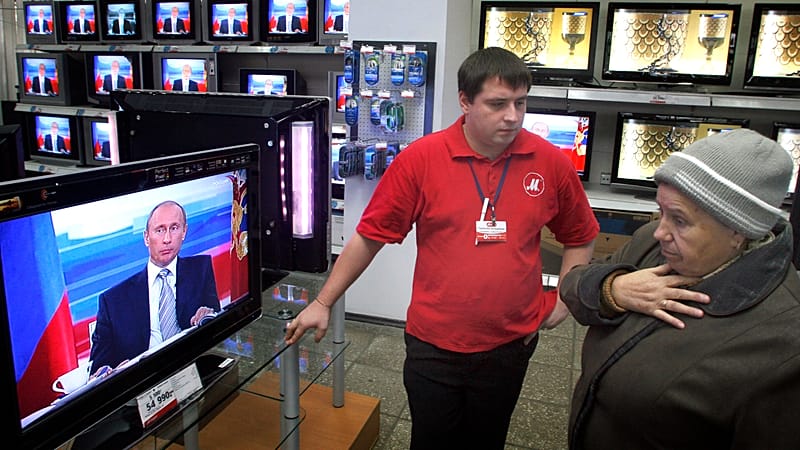Spanish investments dipped sharply since full-scale invasion of Ukraine
Bilateral trade between Spain and Russia has shrunk in value, signalling a clear decision to decouple from the sanction-ridden nation.
The Kremlin’s decision to launch a full-scale invasion of Ukraine almost four years ago has had an undeniable effect on Spanish companies that aspired to open up markets in Russia, with the result that the volume of their exports has plummeted sharply since the beginning of the conflict.
In 2021, total Spanish exports to Russia were valued at €2.2 billion, while last year that figure stood at just €783 million according to data from the Spanish Chamber of Commerce. These figures reflect a fall of more than 64%.
The number of Spanish companies exporting to Russia has also declined over the years. According to the Spanish Chamber of Commerce, there were around 670 such companies in 2021, 399 in 2022, and just 158 by 2023.
Euronews contacted the Spanish Economic and Commercial Office and the Spanish Embassy in Moscow, which declined to comment on the issue.
The disinvestment push by the Spanish economy is due, according to experts, to the invasion of Ukraine and the severe sanctions currently weighing on Russia, which have affected key variables such as access to raw materials, demand and inflation rates.
Since the beginning of the war in February 2022, both the European Union and the United States have imposed numerous sanctions on the Kremlin, which have limited everything from their ability to transfer money to the ease with which they travel to the country.
Related
The European bloc decided last July to penalise Russian gas and banned the direct and indirect use of the Nord Stream undersea pipelines.
More recently, the US announced a new set of sanctions against Russia’s two largest oil companies, Rosneft and Lukoil, to pressure Moscow to sit down and negotiate a peace deal in Ukraine.
Trade relations between Spain and Russia are concentrated mainly around LNG. However, Spanish imports of aluminium and fertilisers are also significant.
A report by the Spanish central bank published in 2024 showed that, despite the EU sanctions, between 2022 and the second quarter of 2024, Russia’s share of Spain’s extra-EU LNG imports rose from 18% to 36%.
However, by May 2025, the country increased its LNG imports from the US and decreased its Russian gas imports to 13.3% of Spain’s total imported gas in the first four months of this year, down from 22.4% in the same period last year.
Another key category of Russian imports to Spain has also recorded increases, with fertiliser imports growing significantly in 2024, according to a report by S&P Global, with urea and calcium ammonium nitrate even reaching record levels.



Leave a Comment
Your email address will not be published. Required fields are marked *